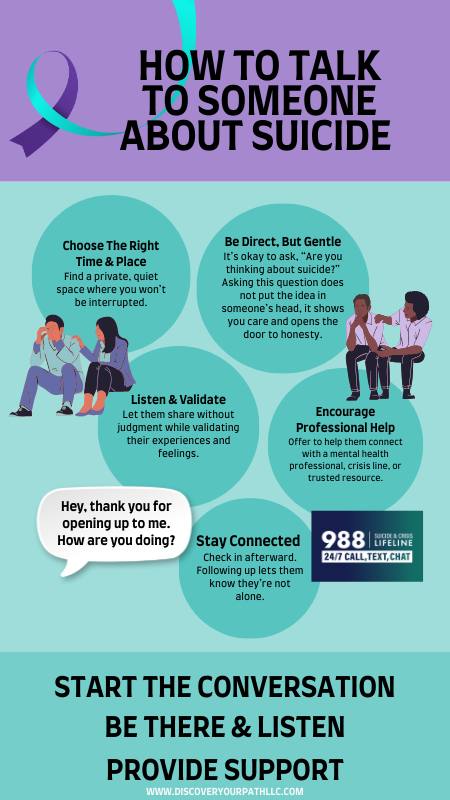September Is National Suicide Prevention Month: How We Can All Make a Difference
September is National Suicide Prevention Month, a time dedicated to raising awareness, sharing resources, and supporting those impacted by suicide. While conversations about suicide can feel heavy, they are also life-saving. By learning the signs, reaching out, and knowing where to turn for help, each of us can play a role in preventing suicide and offering hope.
Why Suicide Prevention Matters
Suicide is one of the leading causes of death in the United States, affecting people of all ages, backgrounds, and communities. Behind the statistics are real people—friends, family members, neighbors, and coworkers, who may be struggling silently. Mental health challenges do not discriminate, and many who experience them don’t know how or where to ask for support.
September offers a collective moment to shine a light on mental health, break down stigma, and remind each other that help is always within reach.
Recognizing the Warning Signs
Warning signs can look different for everyone, but some common signals include:
Talking about wanting to die or expressing hopelessness
Withdrawing from loved ones and activities
Noticeable changes in sleep, mood, or appetite
Increasing use of drugs or alcohol
Giving away possessions or saying goodbye
If you notice these signs in someone you care about, it’s important not to ignore them. Reaching out with compassion and listening without judgment can open the door to help.
How to Talk to Someone About Suicide
Starting a conversation about suicide can feel intimidating, but it may be one of the most important conversations you ever have. Here are some steps that can help:
Choose the right time and place – Find a private, quiet space where you won’t be interrupted.
Be direct but gentle – It’s okay to ask, “Are you thinking about suicide?” Asking this question does not put the idea in someone’s head—it shows you care and opens the door to honesty.
Listen with empathy – Let them share without judgment or rushing in with solutions. Silence can be powerful.
Validate their feelings – You don’t have to have the perfect words. Simple phrases like “That sounds really hard” or “I’m glad you told me” can make a difference.
Encourage professional help – Offer to help them connect with a mental health professional, crisis line, or trusted resource.
Stay connected – Check in afterward. Following up lets them know they’re not alone.
Remember: you don’t have to have all the answers. Your willingness to listen and show up for someone can be life-saving.
National Resources
If you or someone you know is in crisis, you are not alone. Here are some vital resources:
988 Suicide & Crisis Lifeline: Call or text 988 anytime to be connected with trained crisis counselors.
Crisis Text Line: Text HOME to 741741 to connect with a crisis counselor through text.
Veterans Crisis Line: Dial 988 and press 1, or text 838255.
The Trevor Project (LGBTQ+ youth support): Call 1-866-488-7386 or text START to 678678.
National Alliance on Mental Illness (NAMI) HelpLine: Call 1-800-950-NAMI (6264) for information and support.
Moving Forward Together
National Suicide Prevention Month is not just about raising awareness, it’s about creating a culture of openness and compassion. When we speak openly about mental health and remind each other that it’s okay to ask for help, we create communities where people feel seen, supported, and safe.
You never know how much your words, actions, or presence might mean to someone who is struggling. A simple check-in can be the lifeline they need.
